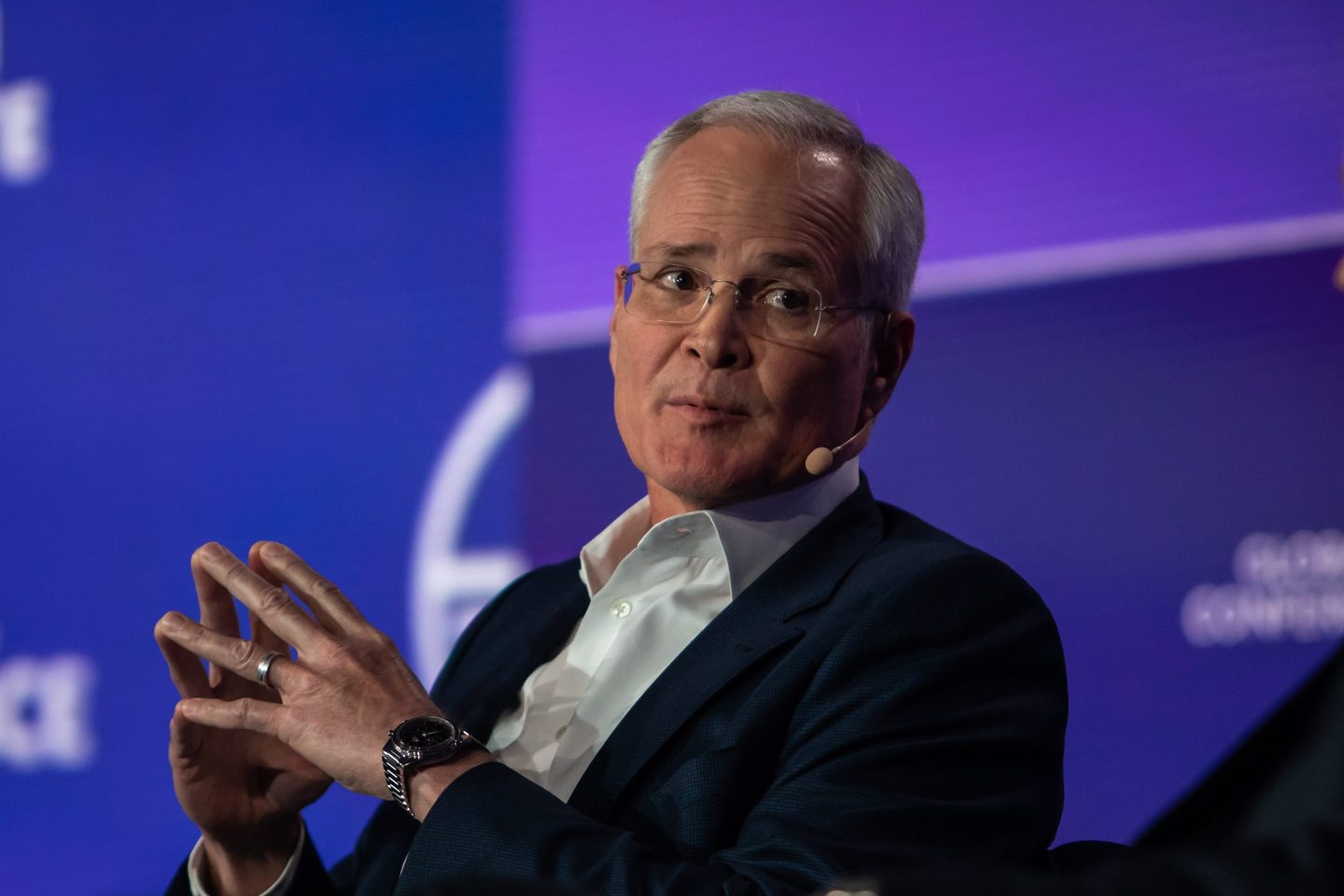My friend, the Newsweek columnist Daniel Gross, posted an entertaining and informative column this week on Slate about what he sees happening next in the Microsoft-Yahoo merger. Like everything Dan writes, this column is worth reading, partly because it’s delightful and also because he does a great job of explaining how these catfights typically work. I agree with everything he wrote — except his conclusion.
To boil down his wonderful words, Dan believes that because Yahoo’s (YHOO) stock price hovers around $29.50, where it’s been more or less since Microsoft (MSFT) offered on Feb. 1 to buy the company for $31 a share, Wall Street is signaling its belief the deal will collapse. He reasons that if investors believed a higher bid was coming, the stock would trade higher. The fact that no private-equity or sovereign-wealth firm has materialized to bid for Yahoo is further proof that no one wants it and that Microsoft won’t fight.
I beg to differ, and not just because I wrote in the current issue of Fortune that a Microsoft acquisition of Yahoo is inevitable. First, Yahoo’s stock price is held back in part because Microsoft’s stock price is down, and half its offer is in stock. Second, if the market really believed that Yahoo will succeed in telling Microsoft to buzz off, the stock wouldn’t be at $29 and change. It would have plunged back toward $19, the sorry level to which it had fallen just before Microsoft dropped its bomb.
Yes, Yahoo traded for $31 not so very long ago. But that was before investors realized how little was going on inside the company, that CEO Jerry Yang was taking his sweet time to clean house, that Yahoo continued to poorly articulate its growth strategy and, perhaps most importantly, that the company faces “headwinds” in its core business, online display ads. Those realities haven’t changed since Microsoft offered to buy the company.
As for another bidder materializing, the fact that nobody — not a phone company, not another media company and certainly not a private-equity shop — has stepped forward tells you something about how the world outside Redmond, Wash., and Sunnyvale, Calif., views Yahoo’s valuation. A financial buyer simply can’t make the numbers work; Only Microsoft can.
But can’t Yahoo simply say no? Sure it can. But if Wall Street really believes no means no, you’ll see a stock drop and lawsuits fly. “We do not believe that Yahoo’s board will be able to turn down a mid-$30s bid without another offer in hand,” RBC Capital Markets analyst Jordan Rohan wrote to clients this week. “Yahoo management has already exhausted the patience of its largest, longest-suffering shareholders and Microsoft’s offer allows them to save some face.” Rohan then reports something I haven’t seen elsewhere: “Microsoft held several meetings last week with some of Yahoo’s largest shareholders. Ultimately, since there is only one class of stock, if those shareholders band together behind the likely-future-revised Microsoft bid, the deal will eventually get done.”Already, that’s beginning to happen. T. Rowe Price and Legg Mason, two large Yahoo shareholders, have gone public with their support for the Microsoft offer.
What this means is that it’s likely wrong to interpret Microsoft’s lack of a higher bid so far as an unwillingness to raise its offer. Instead, think of Microsoft’s behavior as a pause, an opportunity to make Yahoo sweat — or at least get an earful from its own shareholders. Of course Microsoft will raise. But only after Yahoo has the time to consider the meaning of Microsoft not raising.
A few more things to consider, at least for readers not caught up in the mind-messing media games that get played by all sides in this circus. The Wall Street Journalis reporting in Wednesday’s editions that Google (GOOG) is no longer overly interested in pursuing a revenue-sharing deal with Yahoo for search ads. It sources are “people familiar with the matter.” I haven’t checked, but I’m guessing that the Journal, citing “people familiar with the matter,” first broke the news that Google was interested in pursuing a revenue-sharing deal with Yahoo for search ads. Gold star for anyone who can guess where that information started and ended.
Similarly, the conventional wisdom for why Microsoft won’t actually mount a hostile takeover bid, a term of art that is different from the public “bear hug” it currently is pursuing, is that it would scare away Yahoo’s best people. What’s odd about that is that the conventional wisdom up until earlier this month was that most folks you’d want to retain at Yahoo already had left. Conventional wisdom’s a funny thing.
A final thought, and not a happy one for Microsoft, but even less so for Yahoo. Yahoo undoubtedly will draw this process out for a bit. Who knows, they may even force Microsoft to mount a proxy fight, though I doubt it. But let’s say it’s three months before Yahoo acquiesces and another nine months before U.S. and European regulators approve a Yahoo acquisition. Google likely will complete its long delayed DoubleClick purchase this spring. Under this scenario, it would then have a year’s headstart against MSN-Yahoo, which will be the mother of all integration challenges. Neither Yahoo nor Microsoft and the ad businesses it acquired when it bought aQuantive last year will stand still, of course. But talk about distractions.











